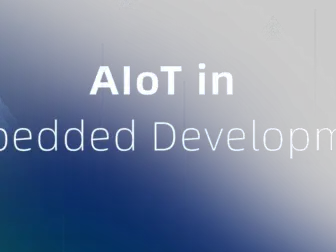Tag - IoT Platforms
AI and Machine Learning, Blog , February 19, 2025 , AIoT, Artificial Intelligence, Data Analysis, embedded development, Energy IoT, Health Devices, iot, IoT Platforms, Smart Cities, Smart Homes
Blog, Edge Computing and Data Analytics, IoT Tools and Platforms , September 14, 2024 , AI at the edge, automation, Cloud Integration, Connectivity, Device management, digital transformation, Distributed Computing, Edge Computing, Edge IoT, Industry 4.0, IoT Platforms, Open Source, Smart Devices, Technology Innovation
The Ultimate Guide to IoT Platforms
Internet of Things (IoT) platforms are essential for connecting devices, collecting data, and enabling communication between devices in the digital world. These platforms act as a bridge between devices and applications, facilitating the exchange of data and enabling automation and analytics.
There are numerous IoT platforms available in the market, each offering different features and capabilities based on specific use cases and requirements. Some of the popular IoT platforms include Amazon Web Services (AWS) IoT, Microsoft Azure IoT, Google Cloud IoT, IBM Watson IoT, and Oracle IoT. These platforms provide a range of services such as device management, data storage and processing, security, and analytics.
One of the key benefits of using an IoT platform is the ability to centralize and manage devices from a single interface. This makes it easier to monitor and control devices, update firmware, and troubleshoot issues remotely. IoT platforms also provide scalable infrastructure to support a large number of devices and data volume, ensuring reliable performance and uninterrupted service.
In addition, IoT platforms offer advanced analytics capabilities to derive insights from the vast amount of data generated by connected devices. This data can be used to optimize operations, improve efficiency, and drive innovation in various industries such as healthcare, manufacturing, transportation, and smart cities. By leveraging machine learning and artificial intelligence algorithms, IoT platforms can predict failures, identify trends, and automate decision-making processes.
Security is a critical aspect of IoT platforms, as they handle sensitive data and control critical infrastructure. To protect against cyber threats and ensure the integrity of devices and data, IoT platforms implement stringent security measures such as encryption, access control, and authentication mechanisms. Regular security audits and updates are essential to address new vulnerabilities and threats in the evolving cyber landscape.
Furthermore, interoperability is a key consideration when choosing an IoT platform, as it determines the ability of devices and applications to communicate with each other seamlessly. Standards such as MQTT, CoAP, and HTTP are commonly used to facilitate interoperability between devices and platforms. Open-source platforms like Eclipse IoT and Kaa offer flexibility and customization options to integrate with various protocols and devices.
As IoT adoption continues to grow across industries, the demand for robust and reliable platforms is increasing. Businesses are looking for platforms that can support their digital transformation initiatives, enhance customer experiences, and drive operational efficiency. In conclusion, IoT platforms play a vital role in enabling the interconnected world of devices and applications, empowering businesses to harness the full potential of IoT technologies.

